Anna Maria Paganoni
Feature Selection for Imbalanced Data with Deep Sparse Autoencoders Ensemble
Mar 22, 2021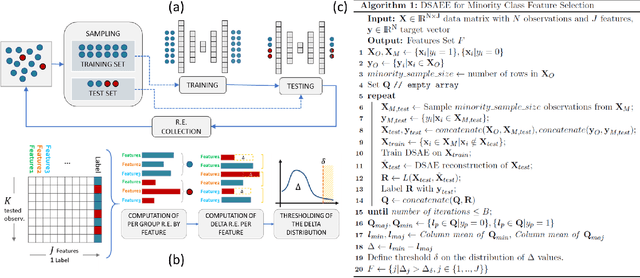
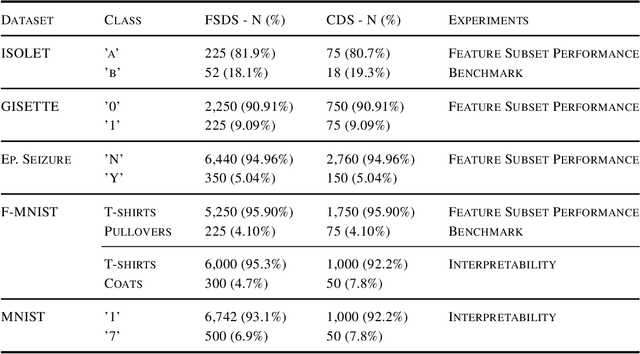

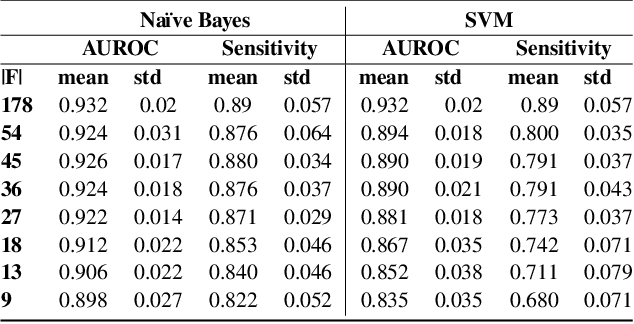
Abstract:Class imbalance is a common issue in many domain applications of learning algorithms. Oftentimes, in the same domains it is much more relevant to correctly classify and profile minority class observations. This need can be addressed by Feature Selection (FS), that offers several further advantages, s.a. decreasing computational costs, aiding inference and interpretability. However, traditional FS techniques may become sub-optimal in the presence of strongly imbalanced data. To achieve FS advantages in this setting, we propose a filtering FS algorithm ranking feature importance on the basis of the Reconstruction Error of a Deep Sparse AutoEncoders Ensemble (DSAEE). We use each DSAE trained only on majority class to reconstruct both classes. From the analysis of the aggregated Reconstruction Error, we determine the features where the minority class presents a different distribution of values w.r.t. the overrepresented one, thus identifying the most relevant features to discriminate between the two. We empirically demonstrate the efficacy of our algorithm in several experiments on high-dimensional datasets of varying sample size, showcasing its capability to select relevant and generalizable features to profile and classify minority class, outperforming other benchmark FS methods. We also briefly present a real application in radiogenomics, where the methodology was applied successfully.
Learning High-Order Interactions via Targeted Pattern Search
Feb 23, 2021
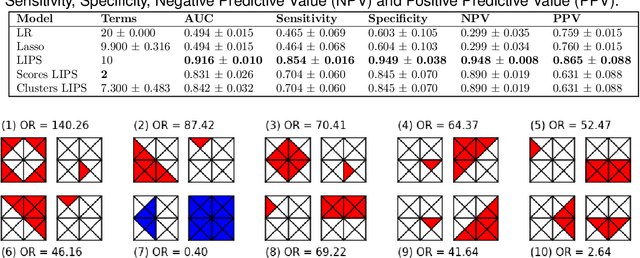

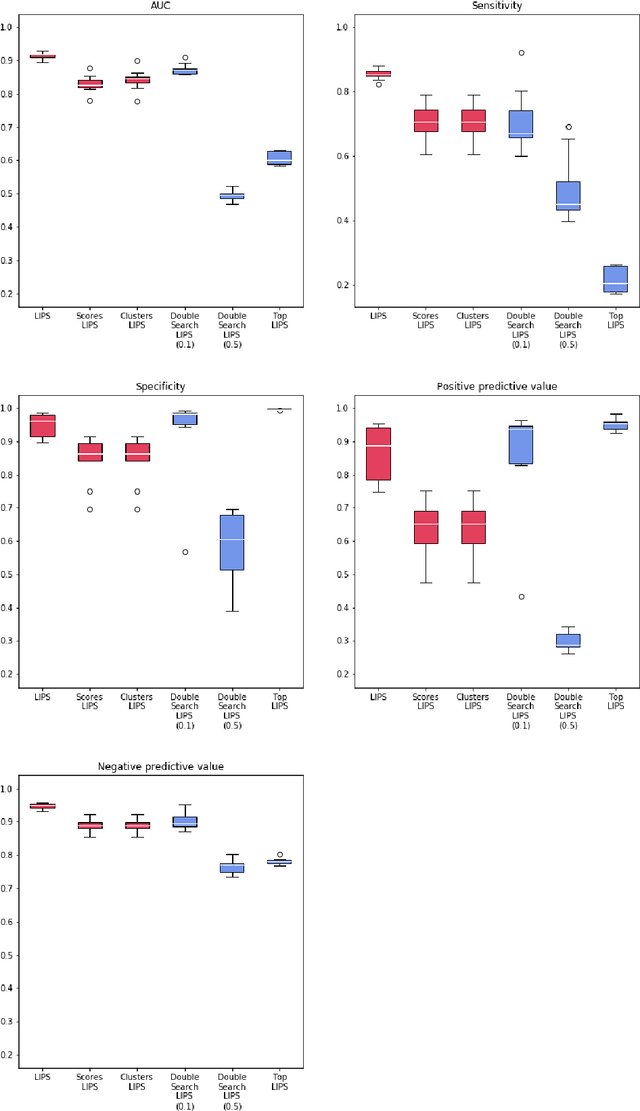
Abstract:Logistic Regression (LR) is a widely used statistical method in empirical binary classification studies. However, real-life scenarios oftentimes share complexities that prevent from the use of the as-is LR model, and instead highlight the need to include high-order interactions to capture data variability. This becomes even more challenging because of: (i) datasets growing wider, with more and more variables; (ii) studies being typically conducted in strongly imbalanced settings; (iii) samples going from very large to extremely small; (iv) the need of providing both predictive models and interpretable results. In this paper we present a novel algorithm, Learning high-order Interactions via targeted Pattern Search (LIPS), to select interaction terms of varying order to include in a LR model for an imbalanced binary classification task when input data are categorical. LIPS's rationale stems from the duality between item sets and categorical interactions. The algorithm relies on an interaction learning step based on a well-known frequent item set mining algorithm, and a novel dissimilarity-based interaction selection step that allows the user to specify the number of interactions to be included in the LR model. In addition, we particularize two variants (Scores LIPS and Clusters LIPS), that can address even more specific needs. Through a set of experiments we validate our algorithm and prove its wide applicability to real-life research scenarios, showing that it outperforms a benchmark state-of-the-art algorithm.
 Add to Chrome
Add to Chrome Add to Firefox
Add to Firefox Add to Edge
Add to Edge